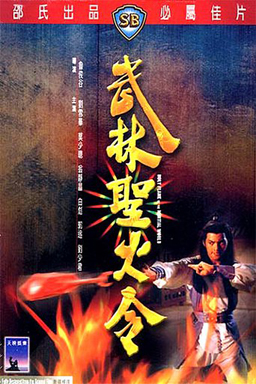 I’d marked four screenings on the Fantasia schedule to attend on Sunday, July 24. The first two were both at the small De Sève Theatre: a presentation of the 1983 Shaw Brothers film Holy Flame of the Martial World (Wu lin sheng huo jin), followed by a short film showcase. The showcase, Fragments of Asia 2016, promised half-a-dozen pieces from across Asia, both animated and live-action. Afterward I’d have time for food, and then two more movies would follow. Before all that, though, came one of the films I’d immediately highlighted when I first saw what was playing at this year’s Fantasia.
I’d marked four screenings on the Fantasia schedule to attend on Sunday, July 24. The first two were both at the small De Sève Theatre: a presentation of the 1983 Shaw Brothers film Holy Flame of the Martial World (Wu lin sheng huo jin), followed by a short film showcase. The showcase, Fragments of Asia 2016, promised half-a-dozen pieces from across Asia, both animated and live-action. Afterward I’d have time for food, and then two more movies would follow. Before all that, though, came one of the films I’d immediately highlighted when I first saw what was playing at this year’s Fantasia.
Each of the last two years I’ve been covering the Fantasia festival, they’ve shown a vintage film from the Shaw Brothers Studio, a classic martial-arts movie house from decades past. After last year’s Buddha’s Palm (Ru lai shen zhang) and 2014’s Demon of the Lute (Liu zhi qin mo), I was eager to see what would follow. That turned out to be Holy Flame of the Martial World, directed by Lu Chin-ku from a script he wrote with Cheung Kwok-Yuen from a story by Siu Sang. (I’ve seen references saying it was based on a comic, but can’t find a title or creator credits.) The print we saw was on 35mm film, possibly the last remaining such copy, and followed an equally-vintage trailer for Secret Service of the Imperial Court, also directed by Lu.
Holy Flame of the Martial World is one of several films from the Shaw Brothers house in the early 80s that turned to special visual effects to try to draw audiences in the wake of the success of Star Wars. The formula of ritualised martial-arts combat from earlier movies was expanded with mystical powers, supernatural beasts, and energy beams, all in the service of an aesthetic bent on entertaining the audience first, last, and always — character development and dramatic coherence be damned. In this case, the story’s engagingly complex and mostly coherent, with martial-arts factions proliferating, mystical quests, and a final high-powered showdown. A young couple are killed by baddies, and their infant son and infant daughter raised by enemy kung-fu teachers. Eighteen years later, the two children (Max Mok and Yeung Ching-Ching), without knowing the true story of their parents or who each other really is, seek the different halves of the ultimate weapon, the Holy Flame.
…
Read More Read More
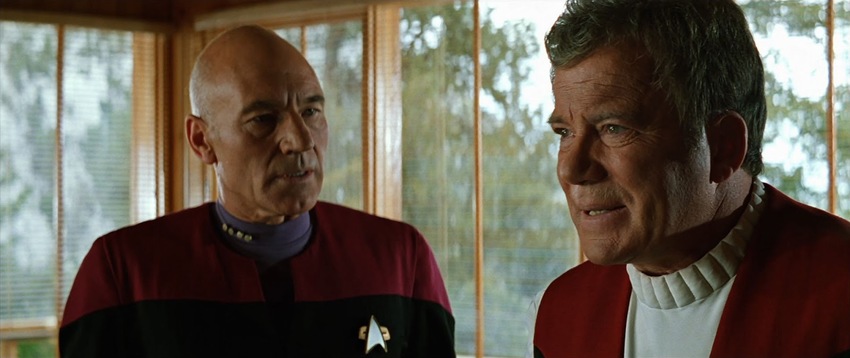
 “It’s an accepted fact that all writers are crazy; even the normal ones are weird.” Wm. Goldman
“It’s an accepted fact that all writers are crazy; even the normal ones are weird.” Wm. Goldman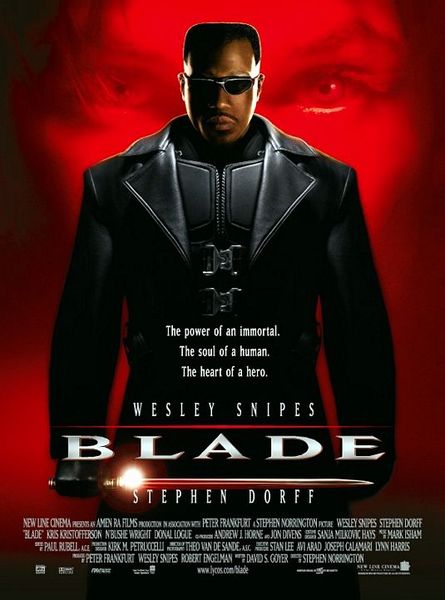
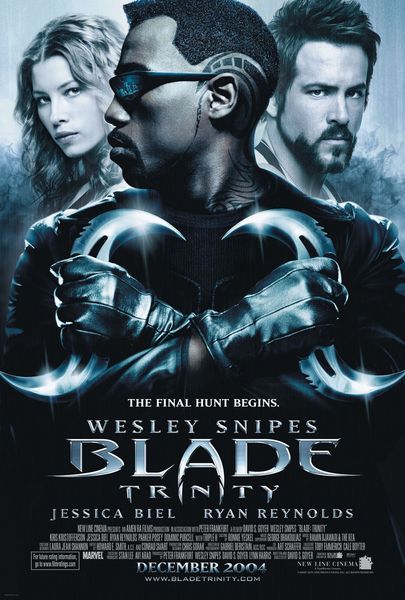
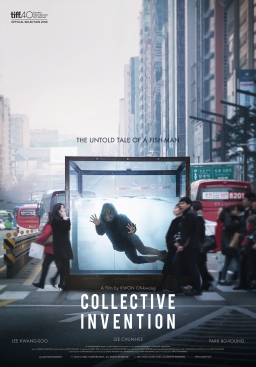 By July 29, the sixteenth day of the Fantasia Festival, I was beginning to feel exhausted. I’d had some thoughts of watching three movies that Friday, but in the end could only manage two. I made it down to the Hall Theatre in the afternoon to watch the Korean satire Collective Invention (Dolyeonbyuni), then came back right after for the raucous Japanese comedy Too Young To Die! (Too Young To Die! Wakakushite Shinu). Neither struck me as flawless, but both in different ways were interesting experiences.
By July 29, the sixteenth day of the Fantasia Festival, I was beginning to feel exhausted. I’d had some thoughts of watching three movies that Friday, but in the end could only manage two. I made it down to the Hall Theatre in the afternoon to watch the Korean satire Collective Invention (Dolyeonbyuni), then came back right after for the raucous Japanese comedy Too Young To Die! (Too Young To Die! Wakakushite Shinu). Neither struck me as flawless, but both in different ways were interesting experiences.
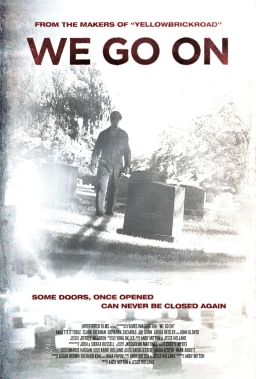 I had errands keeping me away from the Fantasia film festival on Monday, July 25. Now, interruptions are a sad fact of life, but sometimes it’s easy to get back into the swing of things; and as it happened the next day I made it back to the De Sève theatre to watch an American horror film called We Go On, which served to get me back into the Fantasia spirit. Then the day after that I saw two more movies at the De Sève, an odd Swiss romance called Aloys followed by a French horror film called Therapy. The latter had been directed by 16-year-old Nathan Ambrosioni — his second feature film. Together the movies made an odd meditation on life, death, and horror.
I had errands keeping me away from the Fantasia film festival on Monday, July 25. Now, interruptions are a sad fact of life, but sometimes it’s easy to get back into the swing of things; and as it happened the next day I made it back to the De Sève theatre to watch an American horror film called We Go On, which served to get me back into the Fantasia spirit. Then the day after that I saw two more movies at the De Sève, an odd Swiss romance called Aloys followed by a French horror film called Therapy. The latter had been directed by 16-year-old Nathan Ambrosioni — his second feature film. Together the movies made an odd meditation on life, death, and horror.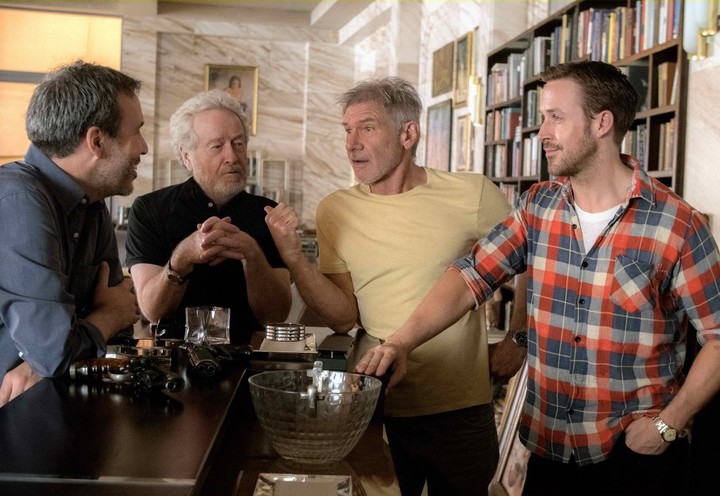
 Impossible to predict some things. Notably: you can’t know how you’ll react to a work of art until you’ve experienced it. Looking at the movies Fantasia offered on Sunday night, July 24, I thought I’d try If Cats Disappeared from the World (Sekai kara neko ga kietanara), which promised a tale about a terminally ill man who makes a surreal Faustian bargain. After that, I decided I should watch Superpowerless, as it was a genre piece about an aging superhero who’d lost his powers. In truth, I had my doubts about both movies; Cats looked it might suffer from excess of romanticism and forced whimsy, while Superpowerless seemed like some kind of mumblecore satire treading ground comics had worked over decades past. In the event, I was wrong to doubt. If Cats Disappeared from the World would be likely the best movie I saw at Fantasia, and probably my favourite. Superpowerless, meanwhile, turned out to be the festival’s most pleasant surprise, the film which most greatly exceeded all my expectations.
Impossible to predict some things. Notably: you can’t know how you’ll react to a work of art until you’ve experienced it. Looking at the movies Fantasia offered on Sunday night, July 24, I thought I’d try If Cats Disappeared from the World (Sekai kara neko ga kietanara), which promised a tale about a terminally ill man who makes a surreal Faustian bargain. After that, I decided I should watch Superpowerless, as it was a genre piece about an aging superhero who’d lost his powers. In truth, I had my doubts about both movies; Cats looked it might suffer from excess of romanticism and forced whimsy, while Superpowerless seemed like some kind of mumblecore satire treading ground comics had worked over decades past. In the event, I was wrong to doubt. If Cats Disappeared from the World would be likely the best movie I saw at Fantasia, and probably my favourite. Superpowerless, meanwhile, turned out to be the festival’s most pleasant surprise, the film which most greatly exceeded all my expectations.  I’d marked four screenings on the Fantasia schedule to attend on Sunday, July 24. The first two were both at the small De Sève Theatre: a presentation of the 1983 Shaw Brothers film Holy Flame of the Martial World (Wu lin sheng huo jin), followed by a short film showcase. The showcase, Fragments of Asia 2016, promised half-a-dozen pieces from across Asia, both animated and live-action. Afterward I’d have time for food, and then two more movies would follow. Before all that, though, came one of the films I’d immediately highlighted when I first saw what was playing at this year’s Fantasia.
I’d marked four screenings on the Fantasia schedule to attend on Sunday, July 24. The first two were both at the small De Sève Theatre: a presentation of the 1983 Shaw Brothers film Holy Flame of the Martial World (Wu lin sheng huo jin), followed by a short film showcase. The showcase, Fragments of Asia 2016, promised half-a-dozen pieces from across Asia, both animated and live-action. Afterward I’d have time for food, and then two more movies would follow. Before all that, though, came one of the films I’d immediately highlighted when I first saw what was playing at this year’s Fantasia.